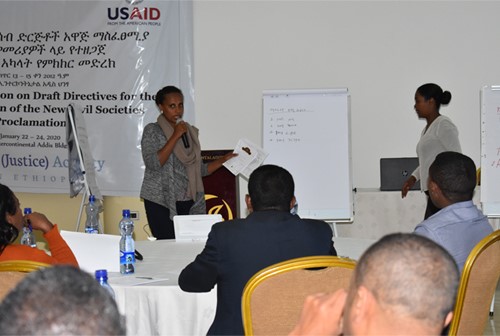Feteh Helps Empower Ethiopia’s Women
19.02.2020
Ethiopia

Thanks to the government of Ethiopia’s focus on female representation in top government offices, the chance for women’s voices to be heard and respected in the top spheres of influence has never looked more promising. However, nationwide change is slow to take hold in a traditionally patriarchal society, where gender-based violence, early marriage, and female genital mutilation are all too common.
The USAID Feteh (Justice) Activity is making every effort to continue the female-focused momentum across the country through the justice sector. Since its inception in early 2019, Feteh works hand-in-hand with the Federal Supreme Court and the Attorney General’s Office to provide critical support in driving reform agendas. After only a year, significant change in ensuring women’s rights can be seen across several platforms – through a steadily improving gender balance in Feteh activities, increased technical knowledge and expertise of the wide-reaching civil society sector regarding women’s and human rights, and most excitingly, through the enactment of the Prison Administration Proclamation in December 2019, which now also focuses on women’s rights in the prison system.
Feteh’s gender balance saw an average increase of female participants in trainings and public consultations by 73%. This number is a positive indicator for both the project’s and government’s efforts to encourage more female representation.
As part of Feteh’s advocacy work through its partner the Ethiopian Civil Society Forum, over 50 civil society organizations came together to share technical viable methods to address and ensure human, and women’s rights are mainstreamed in their activities.
Feteh’s involvement in the drafting of the new Prison Administration Proclamation brought critical attention to overlooked needs of women in the prison system – the regular distribution of sufficient sanitary pads, accountability measures of female and male officers to reduce sexual harassment, provision of maternal health services when applicable, allowances to be excluded from work requirements while pregnant and up to a year post childbirth.
Feteh’s support goes well beyond raising awareness and engaging women in training programs. It incorporates gender into all reform aspects including research and data collection, the policy implications of new and amended laws, and the expansion of networking and partnership opportunities. Feteh will continue to work to positively impact gender knowledge, attitudes, and practices in the legal and judicial communities to advance gender equality and women’s empowerment.